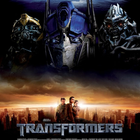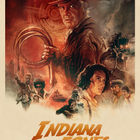INDUSTRY

Mailing List
Hugo Guerra - Director & VFX Superviser - The Mill, Hugo's Desk
Alex Hannerman - Senior Compositor - Weta FX/Digital, SPI, Freelance
Gemma Laguna - VFX Compositor and Lighter - Framestore, MPC
Marcellino D'Avino - In-House VFX Supervisor - Framestore, HOST VFX
Lancelot Maestrini - VFX Compositor - Framestore, The Mill
Jack Lynch - VFX Artist - Realtime, Cheif
Sam Ridgway - Compositor - Ghost VFX
Matthew Fitzgerald - Senior Compositor - Ghost VFX, The Farm Group
Owen Stark - Senior Compositor - Ghost VFX, Blue Bolt
Luke Warpus - Senior Compositor - Untold Studios, Stargate Studios
Damon Gough - Nuke Compositor - Freelance
Giulio Spatola - VFX Compositor - Jellyfish Pictures, RISE
Todd Vaziri - VFX Supervisor - ILM
Adrien Saint-Girons - Head of ADG - DNEG, Redefine, Framestore, ILM, The Mill
Thomas Greenhalgh - Senior Compositor - Framestore, Blue Bolt
Credits
Forming Questions
Hey, <NAME>!
My name is Evan Goddard I’m a VFX student at Futureworks University, and I’m working on a third-year research project about the development of nuke. I’ve created an initial set of questions based on my research. I am mindful that you are probably quite busy however, I was hoping you could answer some of my questions and give me some useful employment advice.
Q1: Looking back to your first job in the industry is there anything you would do differently and what advice would you give to yourself?
Q2: What have been some of the most challenging areas or experiences in your in your career?
Q3: Is a thorough understanding of compositing CG elements important for a Junior compositor role?
Q4: What are the main appeals of using Nuke in your workflow compared to other competitors?
Q5: What are some of the key stand-out skills that help you progress through the industry?
Thanks for your time!
Email (Formal)
DM (Informal)
Hey, <NAME>!
I'm a VFX student and I would really like to ask you some questions about your work as a compositor for my research project about the development of nuke and as well just some general employment advice it would be really great if you could respond though I imagine you're probably very busy. Also if you want to have a chat/mini interview I would be very eager to talk to you about some topics in more depth!
Q1: Looking back to your first job in the industry is there anything you would do differently and what advice would you give to yourself?
Q2: What have been some of the most challenging areas or experiences in your in your career?
Q3: Is a thorough understanding of compositing CG elements important for a Junior compositor role?
Q4: What are the main appeals of using Nuke in your workflow compared to other competitors?
Q5: What are some of the key stand-out skills that help you progress through the industry?
Thanks!
Evan

Questions For Foundry
Good Afternoon!
I'm a VFX student and I would really like to ask you some questions about Nuke and Foundry as a whole for my research project about the development of nuke it would be really great if you could respond though I imagine you're probably very busy. Thanks for your time
Evan
Q: Can you tell me some of the thought processes that go into designing a new nuke feature?
Q: How much of Nuke updates are influenced by plugins made by the community?
Q: In your opinion what are some of the important innovations in the compositing world that have happened recently?
Q: Does Foundry have an official stance on the use of generative AI inside their products? For example, Adobe Premiere Pro is now using it to extend clips past their original length.
Q: Can you tell me any future plans for the development of Nuke? (No worries if you can't!)
Further Questions
Q: When developing my showreel I understand showcasing core compositing skills is important, are there any other skills or software I should focus on?
Q: What compositing software do you use at your job and what other software have you tried?
Q: In your opinion what are some of the important innovations in the compositing world that have happened recently?
Q: Can you recommend some key events/meetups for VFX networking?
Q: If you've used it, have you found Nuke's machine learning toolset helpful and have you used them in any interesting ways yet? (Copycat, Deep Generation for example)
Q: What innovations would you like to see come out of the composting world in the future
Q: What do some of your daily tasks in your Job look like?
Responses

Response: Owen Stark, Ghost VFX, Lead Compositor
Q1: Looking back to your first job in the industry is there anything you would do differently and what advice would you give to yourself?
No, I'm happy with my first job. my advice is to seek guidance from those with more experience who will likely want to help you.
Q2: What have been some of the most challenging areas or experiences in your in your career?
Covid / Hollywood strikes and subsequent major shrinking of the VFX industry. Still uncertain as to the future but our industry is significantly smaller than it was, and wages are lower.
Q3: Is a thorough understanding of compositing CG elements important for a Junior compositor role?
No. You need to understand it of course but juniors aren't expected to know it in a deep way. Juniors won't be assigned complex shots anyway unless it's a small company with a small 2d department.
Q4: What are the main appeals of using Nuke in your workflow compared to other competitors?
Too many reasons to list.
Q5: What are some of the key stand-out skills that help you progress through the industry?
Be curious, never assume there's one correct way of solving something, work hard, go to the office - WFH (Work from Home) might be appealing but nobody will know who you are.

Responses: Luke Warpus, Untold Studios, Senior Compositor
Q1: Looking back to your first job in the industry is there anything you would do differently and what advice would you give to yourself?
During my first gig I think one of the biggest mistakes I made was overselling myself, I was new and fresh with imposter syndrome and wanted to earn my place; so I never wanted to admit that I didn't know how to do something. This led to a lot of long nights of me fighting with my comps and researching online to solve my problem when I definitely could have asked a more senior artist for help and solved my problem right away. Most of the learning that we do in this career is simply just through the osmosis of working with other great artists.
Q2: What have been some of the most challenging areas or experiences in your in your career?
Challenging moments are an interesting thing to think back on. I can think of countless times where in the moment I was frustrated and just wanted to be done with something; only to look back on it and realized what I learned and took away from the experience. As I've become more senior some responsibilities like lookdev have fallen onto me. look dev for a client is one of the most rewarding but frustrating things about this industry. It can very quickly become a slog where your creative ideas are run dry just for them to choose version 03 out of 67 as their favourite. But at the end of the day when the project comes out, you can look back on it and know that you had ownership of something pretty cool.
Q3: Is a thorough understanding of compositing CG elements important for a Junior compositor role?
I think when you're just starting out that you should just be sucking up as much knowledge as you're able to. The importance of certain skill sets really comes down to the project and type of work that you're doing. In my first couple of gigs at smaller studios it was very rare that I comped CG. which led to me developing a really deep well of knowledge and tricks for 2D workflows.
When I was first learning Nuke I was really enamored with a lot of the fancy things you could do with 3D render passes; But I think a strong understanding of 2D fundamentals can really help fix a lot of problems that often arise when working with CG assets.
I've known junior artists who can make BEAUTIFUL full cg comps, but then they will get a note about fixing some edges or painting something out and then they struggle with what should be a pretty simple 2D task.
Q4: What are the main appeals of using Nuke in your workflow compared to other competitors?
Nuke's biggest appeal to me is that it is the tool that it is available in every studio :). Jokes aside It is built from the ground up to do ONE thing very well, and that is compositing. Very early on in my career I comped using after effects and I would often wonder what the big deal with Nuke was; but that was at a time when I was more of a generalist so having a tool that could do comp and motion graphics was really helpful. I would never try to do mograph in Nuke, and nowadays I wouldn't want to comp in After Effects.
Also, once you start managing larger shots and working with large teams of people. The other software packages just simply can't compete
This doesn't mean I think that you should limit yourself to Nuke however. at my current studio a lot of our CG pipeline is driven through Houdini, so I've made an effort to be pretty well versed with it so that I can help out and do simple CG tasks where needed (Poly reducing lidar, fixing UVs, proxy geo etc)
Q5: What are some of the key stand-out skills that help you progress through the industry?
The key standout skills that I believe help people progress aren't even the technical or artistic ones. Sure you need to get better over time and improve. But being easy to work with goes a LOONNNNGG way. Soft skills like time management, communicating with other members of your team, addressing client feedback; this kind of stuff is really hard to teach. I've spoken with supervisors that have mentioned that they would much rather a keen artist who is friendly and eager to learn over a senior who takes every note as a personal attack.
Other skills such as problem solving and critical thinking are a close second. Compositing at it's core is simply the art of problem solving under pressure.

Responses: Matthew Fitzgerald, Ghost VFX, Senior Compositor
Q1: Looking back to your first job in the industry is there anything you would do differently and what advice would you give to yourself?
I'd probably make much more of an effort to check and run through all of my work. I feel like at the start you want to impress so you just favor quantity over quality - when it reality when you're a junior, it's so much better to take your time and going through everything to make sure it's 100%.
Q2: What have been some of the most challenging areas or experiences in your in your career?
I'd say some of the most challenging areas have definitely been the tight deadlines for certain shows. Delivery and crunch time are really tough and trying to go fast and not make silly mistakes is a nightmare.
Q3: Is a thorough understanding of compositing CG elements important for a Junior compositor role?
I wouldn't say CG comp is very important for junior positions. It's great to have an understanding and definitely beneficial for future career development- but at the start the reality is you probably won't be working on that sort of work.
Q4: What are the main appeals of using Nuke in your workflow compared to other competitors?
I personally don't think there are any competitors against Nuke in high end composting. AE has a shout for low-level easier work but advanced work is incredibility difficult in it. Flame has incredible compositing tools, but again that's for more your fast paced, easy clean up work etc... and obviously more of an editing software.
Q5: What are some of the key stand-out skills that help you progress through the industry?
Key stands outs for me would be making sure your work doesn't have silly mistakes and making sure you QC check your work before sending, hitting the nail on the head slower in the first few versions is definitely a lot better than going fast but producing 10+ versions. Also keeping on top of all the new videos, new techniques, tools etc that come out for Nuke. Even though they may not help in 99% of situations, having it in the memory bank is always great. Finally I'd also make sure your interpersonal skills are good, being a lead compositor doesn't just mean you're a nuke guru, you need people skills too. It's almost 50/50, make sure you know what you're talking about but being able to communicate with your team and production is a huge skill and asset.
Interveiws

Interview: Luke Warpus, Untold Studios, Senior Compositor
Q: Looking at your IMDB and Untold Studios it seems you usually work on TV shows, how does VFX for TV differ from VFX for film? if at all?
A: Film and TV don't really have much of a difference, TV is much more work. Advertisement you get feedback quicker and can cheat a bit more.
Q: When you were working on Calico and organizing other artists and keeping track of progress what was the most helpful thing you learned from that experience?
A: In industry, you can rely a lot more on the production managers at the end of the day your job is to get the shot done its up to them to decide when it needs to be done.
Q: When compositing what are some of the most valuable things that you, a compositor can be doing during the pre-production phase of a shot?
A: Make sure you have distortion grids, shoot some grain plates at a high ISO, shoot vignette plates, test out render layers plan for foreseeable problems
Q: If you've used it, have you found Nuke's machine learning toolset helpful and have you used them in any interesting ways yet? (Copycat, Deep Generation for example)
A: Copycat: It works really well for easy shots but doing them by hand would be quicker, very time-consuming just not worth it right now. Started using ComfyUI to generate normal maps
Q: What is a VFX shot, like painting or keying, that you find yourself doing the most?
A: Cleanplating, but if varies from project to project / studio to studio
Q: Do you work across multiple shows/projects at once or are you attached to one project at a time?
A: Multiple shots 1 Project
Q: Are there any workflow techniques that you've learned from your time in industry that you wish you had known earlier?
A: Projection tools, UV painting, Frequence Seperation. Dont use merge masks, copy alpha premult saves detail and reduces issues with merge nodes down the line.
Q: Can you recommend some key events/meetups for VFX networking?
A: No check VFX Union mabye
Q: In your opinion what are some of the important innovations in the compositing world that have happened recently?
A: Not a lot Deep Compositing back in 2011 is very big
Q: What innovations would you like to see come out of the composting world in the future?
A: Nuke gets a better Particle system, 3D system and Paint Tool Rework
Q: And lastly is there any general advice or information you would want to tell me that I haven't asked about yet?
A: Don't take criticism personally.
Analysis
Interview Notes: Luke Warpus
Most Valued Skills:
-
Easy to work with, easy to take criticism as if it's not a personal attack
-
Eager to learn
-
Basic skills/ 2D Fundamentals are a must, fixing edges painting things out ect...
-
Time management
-
Working under pressure
-
Problem Solving
-
Critical Thinking
Career Advice
-
Don't try and oversell yourself
-
Ask for help from the mid to seniors
-
Most of learning comes from osmosis from other great compositors
-
Don't work from home go to the office as much as possible
Ignoreing the research project from this interveiw I gained a great connecton, Luke offered me demos of any systems that I come across that I need some clarification on aswell as offering feedback on projects and advice on my portfolio, from this chat I found out what some of the most valuable skills a junior compositor could have, His biggest peice of advice was to learn how to not take cirtisim personally.
Question Responses:
Q1: Looking back to your first job in the industry is there anything you would do differently and what advice would you give to yourself?
- Quality over quantity, don't have stupid mistakes in your work, double check always
- ask for help when you need it, don't try and oversell yourself
Q2: What have been some of the most challenging areas or experiences in your in your career?
- Covid caused uncertainty in the industry, VFX salaries are lower
- Clients can be stressful
- Tight deadlines can cause you to make mistakes
Q3: Is a thorough understanding of compositing CG elements important for a Junior compositor role?
- Nope Juniors won't be assigned to shots that require 3D work unless you work in a small studio
- Though an understanding is important
Q4: What are the main appeals of using Nuke in your workflow compared to other competitors?
- Nothing else comes close
- After Effects is ok for low-budget cheap shots
- Working in a group nuke is far superior
- Nuke was designed from the ground up to do one thing and that is composting
Q5: What are some of the key stand-out skills that help you progress through the industry?
- Be curious, ask questions
- People Skills, working in groups taking feedback well
- Quality Check your work
- Keep on top of the latest updates
- Know how to communicate in a team














